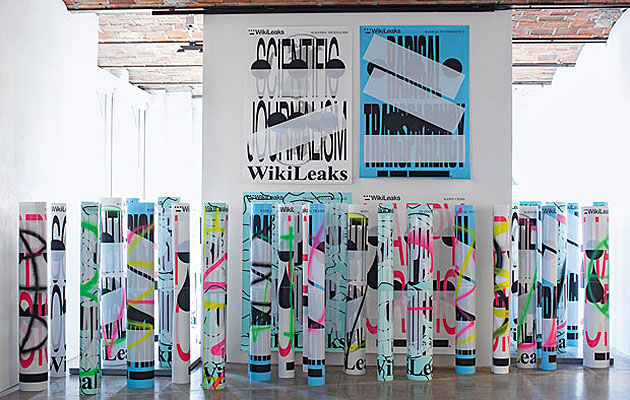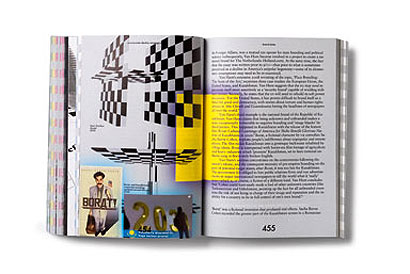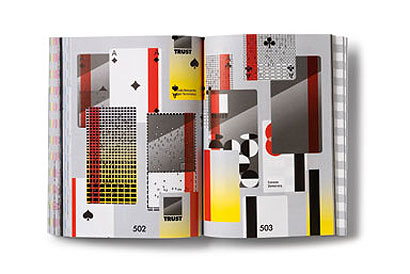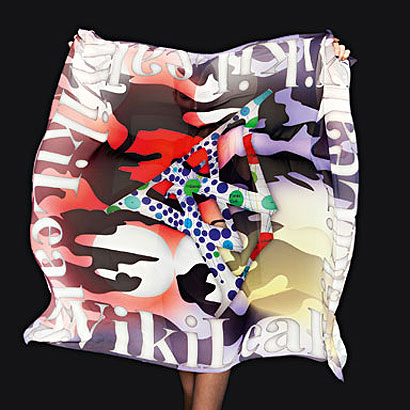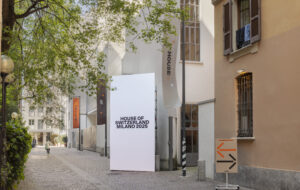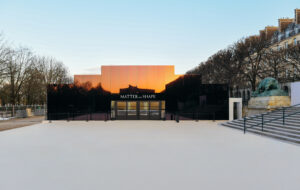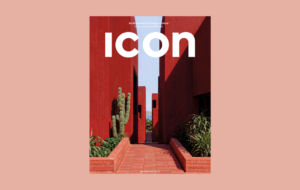|
|
||
|
This article first appeared in our January 2014 issue, which included all the winners of last year’s Icon Awards. Read about the nominees for this year’s award. The winner will be announced on 4 December and be interviewed for our upcoming Awards issue While much recent design has been preoccupied with the opportunities presented by new technologies, the Dutch design studio has been thinking ahead to the risks of the future “Design has always been very docile. I don’t think it was ever this great art of dissent,” says Daniel van der Velden, who with Vinca Kruk comprises Dutch graphic design studio Metahaven. “A very small portion of design has been enlarged in the writing of history. But when it’s been there, it’s been fairly important that it happened.” Today, if any small part of design embodies radicalism and dissent, it’s Metahaven. The usual form in these profiles is to say something along the lines of “it has been so-and-so’s year”, and then list the commissions won, the accolades heaped etcetera. It has certainly been Metahaven’s year. Indeed, the 2010s have been its decade. But not in the usual clichéd sense – not for growth and garlands. At a time when design has shown a tendency towards placid nostalgia in the face of global tumult, when it has been keeping calm and carrying on, Metahaven has been consistently ahead of events. The studio rose to prominence in 2010 with Uncorporate Identity, a meaty slab of a monograph with rare intellectual energy and urgency. It examined how the state defines and expresses itself in the age of the network – suggesting that the infrastructure of the internet might be the 21st century’s answer to the bombastic ferroconcrete of Stalinism. Metahaven’s fluorescent graphics and glitching graphic tone were well suited to the fibre-optic jungle. Data havens, immigration, social networks, privacy, security, unrest – the book strummed most of the exposed nerves of the new-minted 2010s, and when Wikileaks leaked, the eurozone slid into crisis, neoliberal “austerity” engulfed the UK and the Arab Spring erupted, it took on a disquieting aura of prescience.
“We don’t feel like we’re prophets,” van der Velden says. “If you allow yourself to think about certain topics freely and you use a wide variety of sources like we do then those conclusions are not difficult to reach. Design is a way of doing that, that’s what makes it exciting for us.” These sources include the Wikileaks organisation itself, for whom Metahaven designed merchandise including T-shirts and scarves, and an Icelandic think tank seeking to recast the island as a liberal data haven. In the offing is a project with Independent Diplomat, a New York organisation that tries to influence international policy on behalf of groups that are poorly represented at international negotiating tables, such as the people of the Western Sahara or the Syrian rebels. Not typical clients, but absolutely the norm for Metahaven: “One thing we have consistently done is work with people who are working with these ideas who would not normally seek out graphic design as a form they identify with.” Metahaven’s design work tries to express fundamental concepts of statehood, citizenship and identity that haven’t been properly discussed or defined in public discourse – indeed, something the modern state and its corporate partners might be deliberately trying to obscure and distort. It is creating a design language for 21st-century civic society, and proposing new ways to think about the individual’s role in network society. This is important, and rather lonely, work. Even when its intentions are good, design has been stripped of politics and a sense that it can instigate real systemic change, concerning itself merely with the alleviation of suffering via “hacks” and cutesy workarounds within the existing system. That, van der Velden says, is caused by its failure to think beyond its own boundaries. He cites the Helvetica protest signs made by the European modernists who opposed the closure of the Ulm school in 1968: “Beautiful signs, but [they didn’t realise] that the voice of dissent in society is not the same voice as the signs at the airport – that actually design’s voice can be different. Much of that thought takes the form of an underused design tool: writing. Uncorporate Identity has been followed by a long essay on memes and dissent, Can Jokes Bring Down Governments?, edited by the author of this piece and published by Strelka Press. The first retrospective of Metahaven’s work, at MoMA PS1 in New York, also took place this year.
With this year’s revelations about the scale of the USA and the UK’s online eavesdropping, Metahaven again looks ahead of the game – and it has already moved on. “It’s important to not stick too long with the paradigm of surveillance,” van der Velden says, “but to think ahead, to the new challenges that are posed by this situation.” This is the basis of Black Transparency, Metahaven’s next book, looking at the “involuntary transparency” imposed on the individual and the state in a post-privacy world. It, in turn, ties in with Metahaven’s far more ambitious megaproject: sketching a political future for the internet. “The internet started out as a place too complicated for nation states to understand and it has ended up as a place that only nation states understand,” van der Velden says. To save the internet from the state entails two contradictory missions: first, to design system of self- governance for the network; second, to establish safeguards for individual privacy and anonymity online. “So that is actually leaving behind a lot of the graphic design nature of our practice and trying to work more directly with the construction of a political model,” van der Velden says. “We’re working with others on that – it’s not like we’re trying to think that up in our attic. For one design agency it would be too much.” Well, maybe for any other design agency. |
Words Will Wiles |
|
|
||

